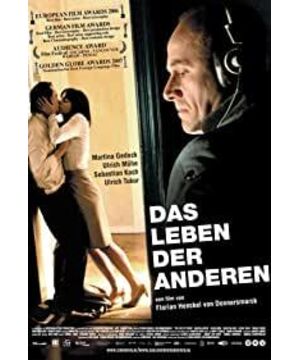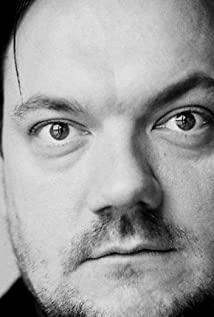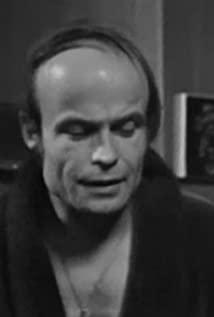Text/The ancient city Roland Barthes said that the reason why power is ubiquitous and perpetual is that power is a parasite of society as an organism. Sixty years ago, George Orwell's novel "1984" was like a sensational prophecy. It predicted the governance technology and structure of totalitarian politics in East Germany forty years from now. There, humanity was suppressed, thoughts were rigid and emotionally indifferent, and the entire society was monitored by the strict "big brother". Any personal emotional breakthrough will be forced to brainwash like Winston and Julia, and then judged as two people, and finally vassal "powerful" and insensitive. Five years ago, "Eavesdropping Storm" used video to record the irritating, shocking and regrettable world before the fall of the Berlin Wall. East Germany has established the largest intelligence system "Stasi" to date. It has established 6 million secret files for 18 million East German citizens. The prison system has been transplanted outside the prison, citizens without privacy have been reduced to "parole prisoners", power has long been extended into residents' bedrooms through the pervasive monitoring system. Obedient In the 1980s, East Germany and West Germany were separated by a wall, but there was a difference between winter and spring. Countless East Germans have long lost confidence in the socialist utopia portrayed by the government. In order to create a "false prosperity", thousands of secret police have become the last barrier of the empire. They monitor the daily lives of citizens, whatever Complaining, cursing, or envy will all lead to a "killing disaster." As a result, obedience (at least superficial obedience) becomes a choice with no choice, and dignity and dignity can only be obtained under the premise of obedience. In "Eavesdropping Storm", the girlfriend of the playwright Dreman and the Minister of Culture have maintained an ulterior relationship for a long time, in exchange for only a "normal" life. There is no rent-seeking power in this, because she and the Minister of Culture are unequal in personality, and there is no contractual relationship, but a naked dominance. What is even more sad is that even though the driver of the Minister of Culture witnessed all this, he remained silent in the face of the truth, an indifferent, almost cruel silence. When Dreman’s neighbors witnessed Wesler’s installation of eavesdropping equipment, Wessler used nonchalant "intimidation" to easily deprive the other party of dignity, dignity and survival basis. This is no longer a threat, but an order. , Because in the face of intimidation we can still resist, but in the face of orders, we can only obey. When Dreman asked this neighbor for advice because she didn’t know how to wear a tie, she didn’t stop talking, but panicked and frightened. She knew that she had a pair of guarded eyes staring at herself at this time, and any crossing of boundaries would touch her. alert. She "helped" the playwright in fear, but indifferently pushed it into an irreversible abyss. If this submissive relationship reflects the unconscious state of the individual under the structure of a totalitarian regime, then it is no longer belief and morality that supports this unconsciousness, but the individual's weighing and utilitarian psychology of his own precarious life situation. The public condoning this kind of top-down abuse of power also shields or even encourages a top-down "crime." What is the difference between them and the enforcers of Hitler's will (jailers) in the Nazi concentration camps? I once defended Hannah ("Long Reader")'s unconscious behavior in the concentration camp with indiscriminate pity and painless defense: the law does not blame the people, the law does not blame the people! My "soft heart" has blurred my original neutral position, and even mixed with a kind of pathological emotional remnants. I have repeatedly warned myself not to become a horrible moral robot, which is tantamount to evading morality and accepting an instrumental "humanitarian" temptation. But now, this warning is extremely empty, because it loses its discernment in the face of a very simple proposition: Are ignorant people really innocent? Utilitarianism is at stake Zizek said that morality itself is an unconditional ghostly existence. In my opinion, political centralization belongs to the existence of the present, it is like a pragmatist. And individuals take great risks to cross the gap between the two, which is unimaginable in that utilitarian and poetic era. Therefore, giving morality to politics is a natural choice, a choice they cannot refuse. In the film, Dreman was guided by Wesler and accidentally discovered his girlfriend's affairs with the Minister of Culture, and tried to discourage his girlfriend from attending the appointment. But his girlfriend’s rhetorical question made him unable to refute: "Do I really need him? Do we really need a system? Do you rely on them less than me? What you do is not like accompany them to bed. In fact, Dreman already knew his situation well. He had a pious belief in utopia and at the same time served as a tool for brainwashing and propaganda of the East German regime's culture. Although Dremann is dissatisfied with the system, he shares the same political views as early socialist scholars like Brecht. They are still believers in socialism and still believe in the inherent reformability of the system. As Brecht wrote in the poem in the film, "It is so white and flawless, and as long as you believe it from the bottom of your heart, it will always be by your side." In the film, Dreman plays football with street children on his way home, which fully demonstrates the innocent and romantic elements of this idealist belief. And his girlfriend's words "just in time" broke through the falsehood of Dreman's identity, and warned him, wake up, there is no idealized Other, and "coming with them" is the right way. After Dreman’s spiritual mentor and partner Jaskar committed suicide, Dreman saw his political prospects, but he still had illusions about the system and tried to give Rajaska a hand in his talk with the Minister of Culture. , But the consequence of Jaskar’s confrontation with the system is something he cannot change from a person who is far from the center of power. Therefore, Dreman wrote an article on "Exploring East Germany's Suicide Phenomenon" for the West German Ming Pao. In fact, apart from his resentment and unwillingness, he made a timely counterattack against the East German centralized system. However, this counterattack also means self-protection. With his political sensitivity, it is impossible not to notice that the reunification of the two Germanys is the general trend. In his counterattack, he actually helped him draw his comrades from the opposite side, and he helped himself after reunification. The political future of the country left a way behind. Of course, it is impossible for Dreman at this moment to hold high the banner of anti-centralization system like those Western left-wing scholars outside the East German system, and the counterattack will naturally end here. And I was surprised to see that an idealist made a rather practical choice after his ideal was disillusioned. Intellectuals have a natural romance Feelings, there is also a kind of utilitarianism in its bones. Romanticism allows him to maintain a valuable flexibility under the system, and utilitarianism ensures that this flexibility will not touch the cordon. But what is the difference between his wise protection of life and those "submissive"? Can he reject the system? Why betray In the film, Wessler does not stand on the opposite side of the power center. He is even a member of the secret police who maintains the centralized rule of East Germany, but opens a door in the cage of the system to escort Derry, who is on the cusp of the storm. Man escaped safely. I can’t help asking, the secret police loyal to the party-state turned into an undercover undercover hiding in the system overnight, but they were not driven by any utilitarianism, and even risked the crime of traitor over their heads. Why? At the beginning of the film, the director arranged for Wessler to talk about the interrogation scene at the police academy. What the audience saw from this instructor was indifference, calmness, and cold-bloodedness. He was a cold "shield and sword" under the centralized system of East Germany. The sophisticated interrogation skills he demonstrated gave the system the coat of "law". Absolute authority and execution. Therefore, it is easy for the audience to equate Wessler with the executioner of the party-state. At the same time, in the dialogue between Weisler and his superior Gu Bitz, Weisler seemed to be a victim of the system. In the totalitarian state power structure, whoever can grasp the power chain will more easily reach the center of power. Bitz is not better than Wessler, but sits in the high position of director of culture. From this point of view, Wessler is a person who is depressed in the system. However, Weisler has remained silent about this, and it is difficult for us to distinguish whether his silence is due to his own numbness or a kind of forbearance. But at least from the contradiction in him, we see an inner impulse to take up the anti-antibody system. Many commentators attribute Wesler's betrayal to the awakening of human nature. This explanation is appropriate in the Western context of advocating human freedom and emphasizing moral beliefs. Sexual desire is a particularly sensitive and solid part of human nature, and sexual awakening means the revival of human nature. In "1984" Winston looked for his dying humanity in prostitutes, and the same was true of Wesler in "Eavesdropping Storm". Western religious systems believe that sexual desire is a kind of "ideological sin" (original sin), and the satisfaction of sexual desire itself implies rebellion, so after Wessler learned of Krishsta's (Dreman's girlfriend) secret dealings with those in power, Seeking joy from the prostitute implies that this rebellious mood has been aroused in Wesler's body. In my opinion, when Wessler first saw Krixista in the theater, he and Krixista established an ambiguous relationship between peeping and being peeped. Whether on the stage, at the reception, in the car or in the interrogation room, the center of Weisler's gaze never left this charming woman (I even suspect that he was full of her when he was dating a prostitute). Laura Mulvey said in "Visual Pleasure and Narrative Movies" that the subject (male observer) will be deeply sensualized by the subject (male observer) after passing through the female body with visual wonders. Transformation, aestheticization and moralization. So we see that at the very moment, Wessler can often stand in the position of Krixista, help her and save her. One of the most typical examples is that before Krishsta went to the minister's appointment, when he met Wesler in the bar, his exhortation contained the sensibility that this man rarely possessed. In other words, there is a perceptual element in the reason for Wesler's "treason to the party and the country" to comply with his own emotional needs. Just a prostitute At the end of the film, Dreman discovered the existence of the "good guy" Wessler while looking through his archives a few years later, and wrote a "good guy sonata" dedicated to this "good guy" who lives silently around us. It seems that the existence of this book is the best reward for Wesler's betrayal, which also conforms to the moral expectation of "good people get rewarded", which makes the end of the film extremely warm. However, utilitarianly speaking, as a good person, Wessler paid a painful price for his betrayal. He could only work with letters and mailboxes all his life, and then looked at Dreman, who was saved by him, sitting elegantly with the young girl in his arms. The theater for fun. I don't want to discuss here whether his betrayal is more rational in distinguishing between good and evil in human nature, or whether he has more subjective demands out of his own emotional needs. But "is his betrayal worth it?" Speaking of worth and not worth, I thought of "Lust Caution". When the alarm went off, Wang Jiazhi, who was sitting on the tricycle, must have asked the same sentence, is it worth it? When Kuang Yumin went to see Lao Cao, Wang Jiazhi was waiting downstairs to see what was wrong, but she just looked at the prostitute who was shaking the fan on the terrace; in order to play Mrs. Mai, who was wrong with Wang Jiazhi, so she had to go with Liang Runsheng, who loves to go to the kiln. When meeting with Mr. Yi, it’s a bad place to go. It happens to be in a Japanese geisha hall; Wang Jiazhi smiled and asked Mr. Yi, "You called me here because you want me to be your prostitute." Mr. Yi said The most candid saying, "I know better than you to be a prostitute"... For a girl, she doesn't know what national justice is. She only knows that her father, aunt and lover don't care about her life or death, so she can only sell her body as a spy (at least listen It sounds better than being a prostitute). Wang Jiazhi couldn't understand it better: it was just a prostitute. Even in my heart, I was still crying out for Liang Runsheng, who gave the first night to the nasty three years ago, it's worthless. And the man in front of her knew her—"I know better than you to be a whore", so she said "Go". At that moment, she took off her shell without hesitation, and stopped acting as Mrs. Mai or a spy, let alone doing it. prostitute. Even if the organization betrayed the country, it is worth it. Going back to the film, Krishsta asked Dreman, "Don't you behave like accompany them to bed?" Weissler, who was behind the wiretap, must have heard these words too. Where is the ideal communism that this country promotes? Those in power, or the gangsters like the Minister of Culture, or the magnates like the Gu Bitz, are full of utilitarians who sell themselves in exchange for benefits. He has long hated the country’s system, flattery, and cynicism. . In the elevator, the little boy playing football asked him, "Are you a policeman... Dad said the secret police are all bad guys." He blurted out, "What's your name", but he stopped immediately, why bother Be an executioner. In fact, he had already understood in his heart: he was just a prostitute. Therefore, saving the innocent artist in front of him is not because of the revival of morality or the awakening of humanity, but because he does not want to be a prostitute and is no longer utilitarian. Even the betrayal of the country by a betrayal organization is worth it. Just for not being a prostitute, what a simple and poetic reason, but almost everyone shouted worthless for Wang Jiazhi, but shouted for Wesler. In my opinion, whether it is the National Government served by Wang Jiazhi or the Democratic Germany served by Wesler, both are huge state apparatuses. In essence, they sacrifice individuals in exchange for their own stability. Being a spy or a policeman is essentially a prostitute. However, the two chose to betray by coincidence, both of which are an individual's breakthrough toward collective will and an individual's breakthrough toward totalitarianism. But what is the result? "Bad guys" like Wang Jiazhi were shot on top of the mine, and "good guys" like Weissler were abandoned in slums in Germany. Possibility of Breakthrough In the past two decades, countries labelled with totalitarianism seemed to be cursed by God and collapsed. As a result, we thought that we had succeeded in breaking through, and we started to carnival with the villains who advertised liberalism, and found hypocritical satisfaction in the process of defending the existing order. Nowadays, no one will deny that the collective is indispensable to the individual. However, when "the minority obeys the majority" becomes a matter of course, or a rule of judging right and wrong and pronouncing life and death, the collective is abstract to the individual. Irresponsible, even disgusting. The “Law of the Majority” creates a bottom-up authorization method. As a result, the will of a few people is abandoned and rejected. Power is more and more biased towards one pole, and the power of power is becoming more and more invincible. We are more and more invincible. Hear a voice, or a tone of voice. Isn't this a resurgence of totalitarianism? When Western scholars preach the slogan "Freedom to Save the World", are they deceiving us into jumping into the global container created by this indifferent and utilitarian society? Zizek said that in this world, it seems that there are choices (free) on the outside, but in fact there are basically no choices. There is no difference between choosing Democratic or Republican politically and choosing KFC or McDonald's in life. I chose KFC today, not because of personal emotional preference, but because I ate McDonald's yesterday. This is completely the result of no choice. Today's (capitalist global market) social reality itself is governed by the power of "reality abstraction". Political parties, countries, numbers, and networks that advertise freedom and democracy are like twin brothers, in charge of our life and death. In the past, our moral standards are gradually being replaced by pragmatic rules that coordinate the interests of different groups, and personal emotions are gradually being replaced by unified social standards. A shrewdly calculated exchange of interests, a kind of power exchange without faith, has already invaded the "marrow" of society. The Jewish thinker Heschel once said, “When I think of society ruled by those who absolutely believe in their own ingenuity, by those who think that everything in the world is crystal clear and transparent, they don’t know what is mysterious, and what is uncertain. People rule, I don’t shudder.” There are so many doubts and fears about the supremacy of utilitarianism and the supremacy of science and technology. Many people have to admit that Orwell’s almost forgotten concept of "Big Brother" is gaining new life from digital life. Real life is more and more like being maintained by a virtual order constructed by these abstract knowledge and concepts. . Zhou Xiaofeng said, how much space is left for a world that can be calculated to ten thousand digits after the decimal point of π? Sensual and poetic? Therefore, pragmatism is always better than idealism, and it is always easier to be a prostitute than to cleanse oneself. "Bad guys" like Wang Jiazhi and "good guys" like Wessler have long been sentenced to death and extinct. What we see are all kinds of disguised faces, proclaiming to the world without shame, and never remove makeup. To be a bitch, you have to set up an archway! I seem to see the desire for power and fame and all the human political, economic and cultural landscapes built together, forming an airtight wall, rejecting all individual emotions and idealism. This is a dead end in history.
View more about The Lives of Others reviews











